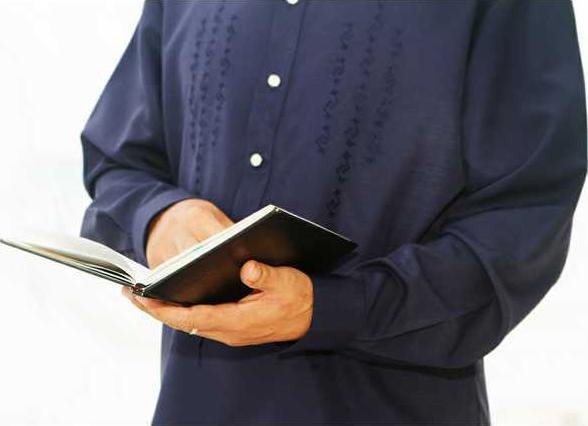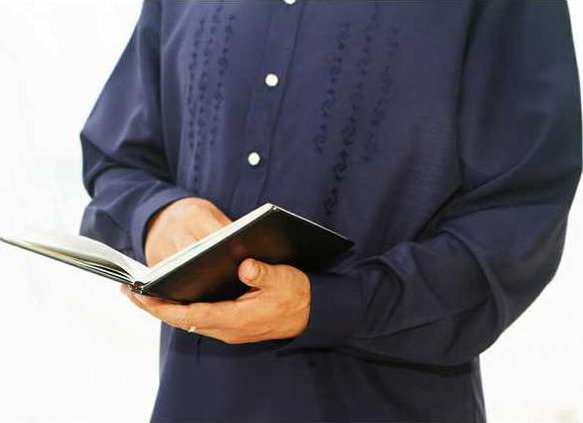A majority of Americans (79 percent) believe it's inappropriate for preachers to endorse political candidates from the pulpit, according to newly released data from LifeWay Research.
Only 19 percent of those surveyed said they approve of such endorsements, with 2 percent saying they were unsure of where they stood.
Additionally, three-quarters of Americans said they believe churches, too, should avoid endorsements, and 81 percent said houses of worship shouldn't use their resources to campaign for candidates.
Clearly, there isn't much of an urge among the public to hear pastors getting too political and perhaps there's a good reason for that.
"Americans already argue about politics enough outside the church," Scott McConnell, executive director of LifeWay Research, said in a statement. "They dont want pastors bringing those arguments into worship."
While people largely don't want to see their pastors and churches issuing endorsements, the majority also don't believe it's right to punish houses of worship if they choose to do so.
Under IRS regulations, churches registered as 501(c)(3) organizations cannot issue such endorsements, but when LifeWay presented the statement, "Churches who publicly endorse political candidates should lose their tax exemption," 52 percent of respondents disagreed and 42 percent agreed.
This LifeWay data, collected last year, is being released amid renewed discussion surrounding the Johnson Amendment, the IRS regulation that bars nonprofit churches from endorsing candidates.
There's a long and complex history surrounding the regulation, which I recently documented. The Johnson Amendment has been in the headlines this summer after Republican presidential candidate Donald Trump pledged to overturn it.
"Were going to get rid of that horrible Johnson amendment and we're going to let evangelicals, were going to let Christians and Jews and people of religion, talk without being afraid to talk," Trump said in July.
As previously documented, the ban does not allow churches to engage in political campaigns or to rally for "any candidate for public office."
With the new LifeWay research in mind data that was collected months before Trump started speaking out against the Johnson Amendment it's clear Americans don't like the idea of church political endorsements, but many also reject punishing houses of worship that engage in this behavior.
"Endorsements from the pulpit are unpopular and most Americans say they are inappropriate," McConnell summarized. "But they dont want churches to be punished for something a pastor said."
The issue is not all that pervasive, though. According to a recent Pew Research Center study, only 14 percent of congregants reported hearing a pastor endorse a candidate from the pulpit.
Either way, the Johnson Amendment has sparked controversy over the years. A group of pastors comes together with conservative legal firm Alliance Defending Freedom each year to rail against the regulation.
They organize the Pulpit Freedom Sunday, an event during which preachers openly discuss politics from the pulpit to push back against the IRS.
However, Michael De Dora, director of public policy for the Center for Inquiry, told Deseret News National earlier this year he believes the regulation should stand.
"We would suggest the Johnson Amendment is a fair law that prevents organizations exempt from paying certain taxes in the U.S. from influencing election outcomes," he said.
Read more about the debate here.
Only 19 percent of those surveyed said they approve of such endorsements, with 2 percent saying they were unsure of where they stood.
Additionally, three-quarters of Americans said they believe churches, too, should avoid endorsements, and 81 percent said houses of worship shouldn't use their resources to campaign for candidates.
Clearly, there isn't much of an urge among the public to hear pastors getting too political and perhaps there's a good reason for that.
"Americans already argue about politics enough outside the church," Scott McConnell, executive director of LifeWay Research, said in a statement. "They dont want pastors bringing those arguments into worship."
While people largely don't want to see their pastors and churches issuing endorsements, the majority also don't believe it's right to punish houses of worship if they choose to do so.
Under IRS regulations, churches registered as 501(c)(3) organizations cannot issue such endorsements, but when LifeWay presented the statement, "Churches who publicly endorse political candidates should lose their tax exemption," 52 percent of respondents disagreed and 42 percent agreed.
This LifeWay data, collected last year, is being released amid renewed discussion surrounding the Johnson Amendment, the IRS regulation that bars nonprofit churches from endorsing candidates.
There's a long and complex history surrounding the regulation, which I recently documented. The Johnson Amendment has been in the headlines this summer after Republican presidential candidate Donald Trump pledged to overturn it.
"Were going to get rid of that horrible Johnson amendment and we're going to let evangelicals, were going to let Christians and Jews and people of religion, talk without being afraid to talk," Trump said in July.
As previously documented, the ban does not allow churches to engage in political campaigns or to rally for "any candidate for public office."
With the new LifeWay research in mind data that was collected months before Trump started speaking out against the Johnson Amendment it's clear Americans don't like the idea of church political endorsements, but many also reject punishing houses of worship that engage in this behavior.
"Endorsements from the pulpit are unpopular and most Americans say they are inappropriate," McConnell summarized. "But they dont want churches to be punished for something a pastor said."
The issue is not all that pervasive, though. According to a recent Pew Research Center study, only 14 percent of congregants reported hearing a pastor endorse a candidate from the pulpit.
Either way, the Johnson Amendment has sparked controversy over the years. A group of pastors comes together with conservative legal firm Alliance Defending Freedom each year to rail against the regulation.
They organize the Pulpit Freedom Sunday, an event during which preachers openly discuss politics from the pulpit to push back against the IRS.
However, Michael De Dora, director of public policy for the Center for Inquiry, told Deseret News National earlier this year he believes the regulation should stand.
"We would suggest the Johnson Amendment is a fair law that prevents organizations exempt from paying certain taxes in the U.S. from influencing election outcomes," he said.
Read more about the debate here.

